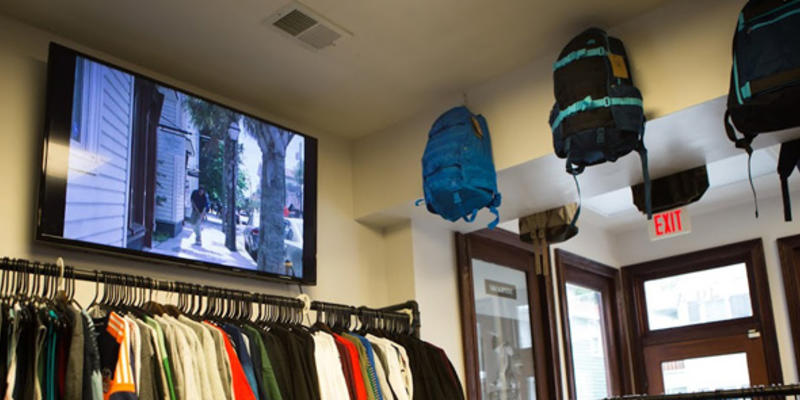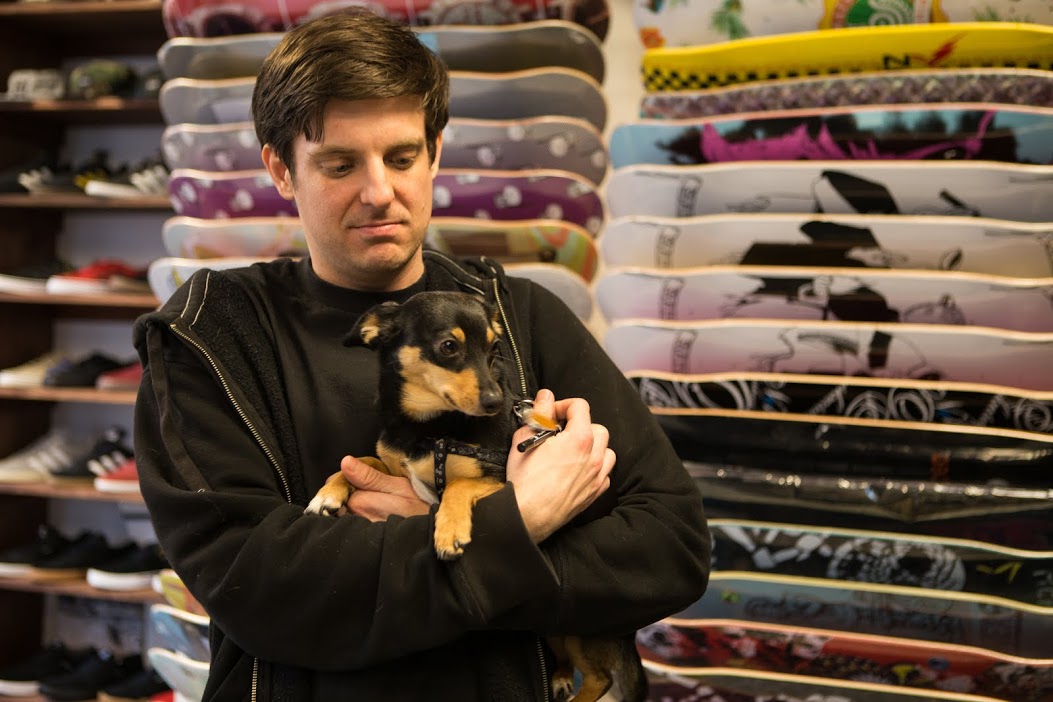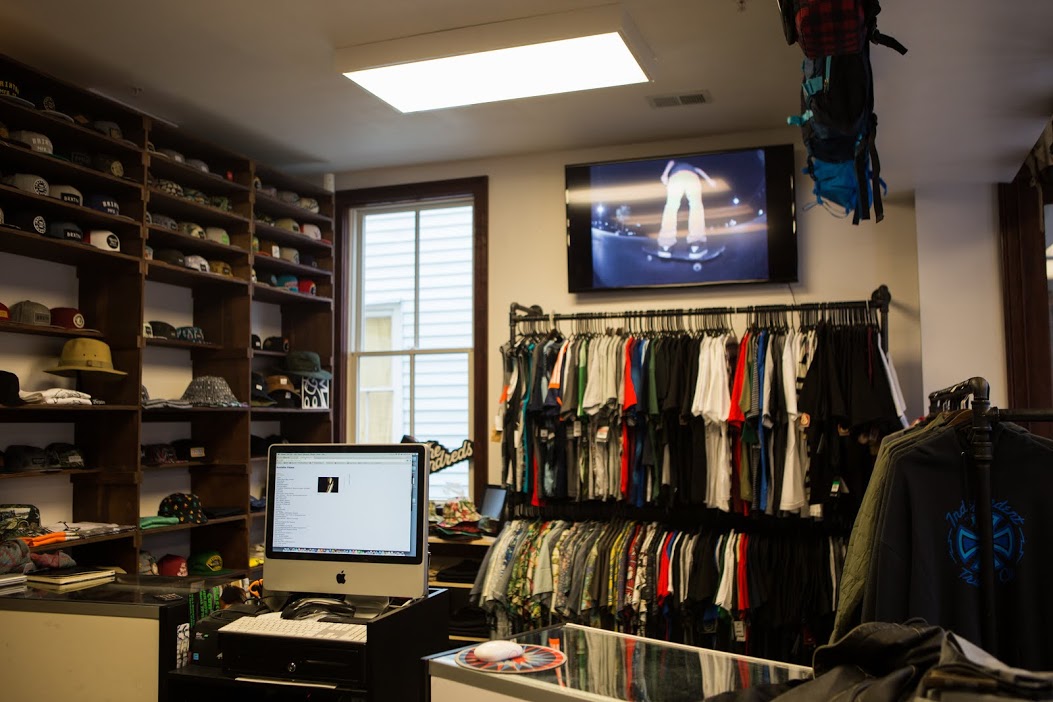
“Skateboarding has a culture to where you can go from town to town and just meet people, and just because they skateboard, you can hold a conversation with them and get to know a lot about their scene: where they live, they’ll show you around, it’s kind of like a family, in a sense." 25 Years and Counting by Lunch and Recess
Skateboarding has progressed quite a ways since originating in the ‘50s surf community. Since migrating from waves to cement, skating has been referred to as a pastime, career, and extreme sport while fluctuating in and out of popularity. It has fallen into association with the ‘90s punk movement, heavy with anti-establishment sentiment, and also into a culture regarded as highly commercialized with lifestyle branding and competitions, such as X Games and Dew Tour. As something that has permeated subcultures of varying degrees, developing a clear identity for skateboarders has been a consistent challenge.
Lunch and Recess’s new video, “25 Years and Counting,” answers that identity question: skateboarding is a community in itself. It does not belong to any one of the genres it has been associated with in the past few decades. It attracts creative minds from all aesthetics, races, continents, and social classes—bringing people together while still allowing for an individual’s freedom of expression. Disregarding the universal nature of skateboarding, it has still remained a relatively small community and seems almost non-existent in certain regions in the U.S. and the world. However, that has increasingly changed within the past few years as technology and social media have exponentially grown.
At the forefront of sharing skateboarding through technology were Stacy Peralta and George Powell, with 1984’s The Bones Brigade Video Show, which introduced skate videos as a creative method for skaters to show off their talent, spread their culture, and potentially gather a following for their competitions. Since the ‘80s, iPhones and GoPro cameras have become easily accessible and allow for just about anyone to film themselves skating. From there, they can upload the video to YouTube, gather a following, compete, become a shop or brand representative, and create their path to becoming a pro.
This prevalent independent film community is where Pointa.TV, a streaming service made available to skate shops and other entertainment establishments (restaurants, bars, etc.), was inspired. Utilizing the Google Chromecast platform, Pointa has made the process of showing off skate videos easier for retail owners. It consolidates the latest videos from independent filmmakers and lifestyle brands into one location, lines them up, and seamlessly loops them to get rid of the hassle of constantly restarting DVDs or navigating to different websites.

South Carolina native Cory Wilkinson and his partners—Jonathan Abel, Jamie Vega, and Sean McCambridge—are the creative minds and developers of the service. At the forefront is Wilkinson, who has been invested in the skate community since he was young and working behind the counter in skate shops. In 2004, he and Jack Abbott opened Continuum in Sumter, SC and began their board company Nobyl (although it has since been discontinued). During this time, they filmed several of their shop representatives skating urban obstacles for marketing and promotional purposes. One of their skaters, Dan Plunkett, has since become a professional and is now represented by Skate Mental and HUF. Of course, Wilkinson and Abbott also made the videos just out of their love for skating and filming.

Cory Wilkinson
Shortly after Continuum relocated to Spring Street in downtown Charleston in 2008, Wilkinson moved on to become a sales representative for a few skate brands in the Southeast. As someone who has been so invested in both filming and marketing within the skateboarding world, the by-product of the streaming service comes as no surprise. Pointa.TV is not only a great solution to combine the two features of skate culture, but also furthers their effectiveness.

Jack Abbott
The platform allows for brands to share their most recent film material in a cost-effective and direct method. Through a subscription-based membership, they can control how much time their material is aired and can be assured that it will be on a playlist with other relevant, high-quality material. Wilkinson confirmed that there is a standard imposed on all the videos accepted to the streaming service, especially when it comes to choosing independent filmmakers. Ideally, Wilkinson is looking for videographers who have shown a real dedication to their craft and already have a handful of skate videos produced. A few indie filmmakers that locals may recognize include Mike Hogan, Dorian Warneck, Willy Mac, and Devan Dunn.
Aside from maintaining a good reputation for the service, the main reason for a quality requirement is because Pointa.TV hopes to provide an even greater incentive for those filmmakers—payment. Along with the already valuable opportunity to share their videos with a larger audience, Pointa anticipates a shared revenue program that will direct a portion of the money earned from users’ subscription payments to the indie filmmakers. Wilkinson wants to be sure that filmmakers receiving payment for their videos are actually passionate about making somewhat of a career out of it, not just riding off the success of one GoPro video.
Essentially, Pointa.TV aims to bring the prosperity full circle and offer something to every player involved. The streaming service has received positive feedback and many shops already have the prototype installed, including Continuum. Charleston’s Recovery Room also presents the skate videos, and several people have told Wilkinson that they love watching the films while grabbing a beer, especially those who were unfamiliar with the breadth of skateboarding artistry before.

Pointa.TV streamlng in Continuum
It goes to show that the authenticity represented in the skate community is easily relatable, regardless of whether you’ve stepped foot onto a board before or not. In coalescence with other organizations, such as Pour It Now, the Holy City could ideally see a substantial expansion in their skate community and, finally, the construction of a park they’ve been advocating for since ’89.